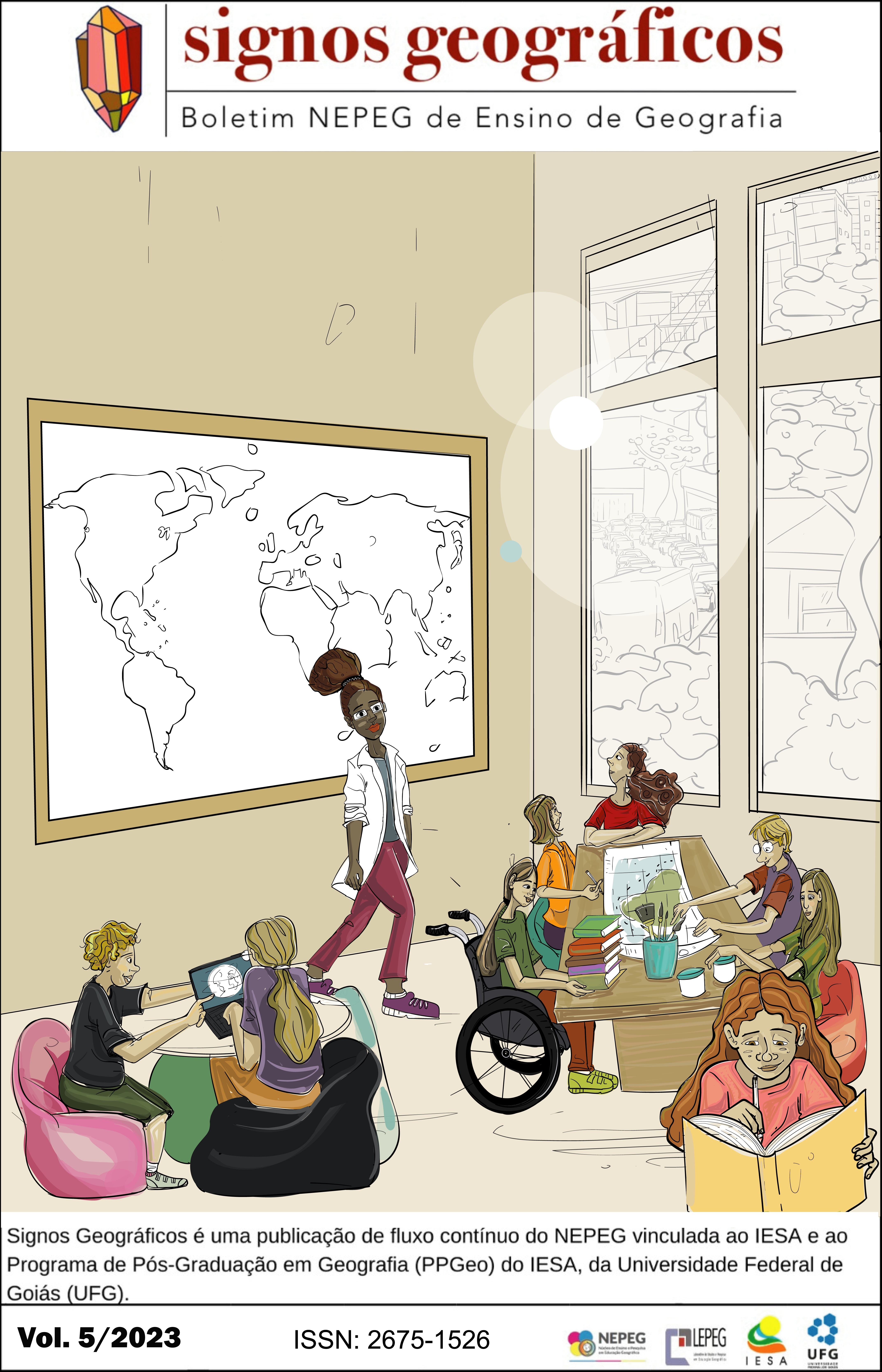THE GEOGRAPHIC SPACE IN GEOGRAPHY TEACHING: A CONTINUUM IN BETWEEN BIOLOGICAL/EXISTENTIAL NEED AND POSSIBILITY SET
DOI:
https://doi.org/10.5216/signos.v5.74851Keywords:
Geographic Education, Geographic Concepts, Geographic Knowledge, Geography TeachingAbstract
This paper aims at analyzing and interpreting the geographic space and its multiple approaches towards the Geography teaching in Basic Education. It was questioned how the conceptual construction of geographic space, as an essential activity of teaching Geography in Basic Education, can be carried out, considering the different theoretical-methodological perspectives. As a unfolding, the result of bibliographical research and authorial reflections, we developed it as a continuum movement among: 1. Biological/existential need — sensitive dimension and the student’s imagistic development towards the construction of spatial representation; 2. as an element of dialectic construction between cultural identity/geographic sense of belonging and the comprehension over diversity/difference in the world; 3. as a Geography object of study – synthesis of geographic knowledge; 4. in the dimension of its operational concepts and geographic scales; 5. as a logical and systemic instrument of reading and world intervention; 6. as criticism and social surpassing of capitalism and its spatial adjustments; and 7. as a set of possibilities on reality transformation and transposition. Thereby, we believe that such approaches in Geography teaching corroborate with the development of its complexity, from the understanding of geographic space in its parts, by the division of the content, to its totalization, by the synthesis of geographic knowledge, in a permanent and dialectical process of sharpening, dexterity and formation of geographic sensibilities, abilities and thinkings.








